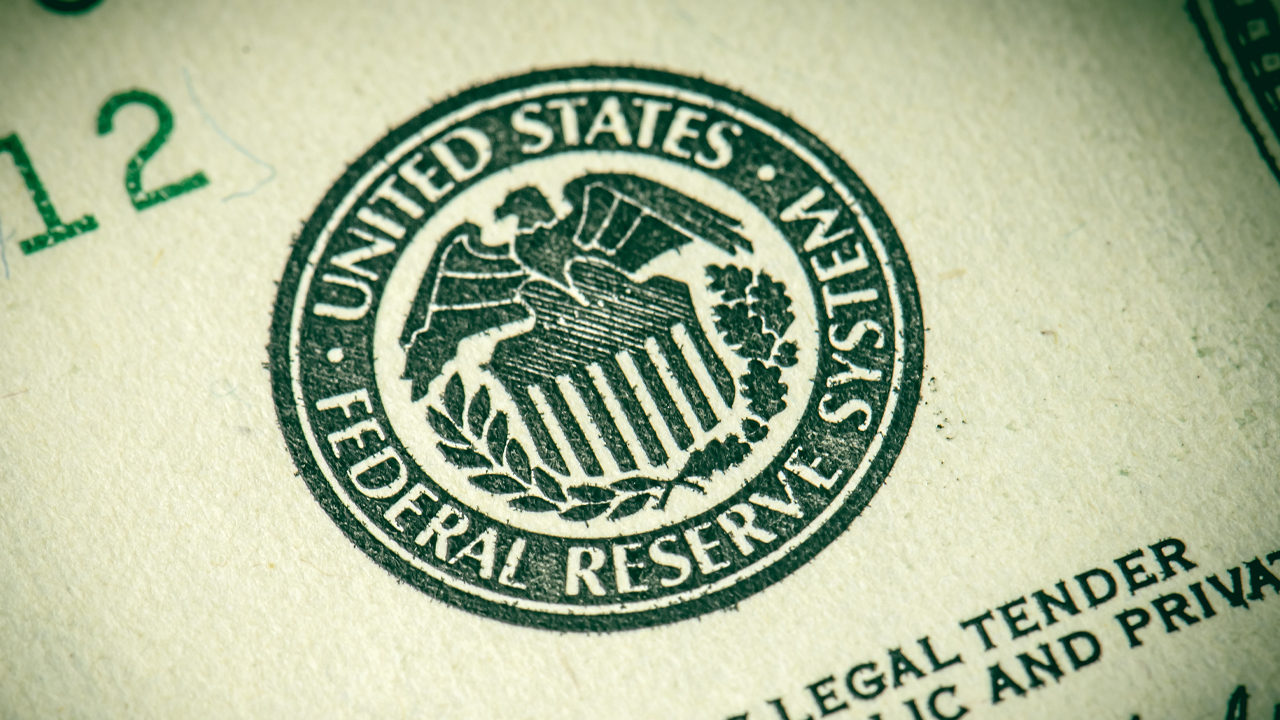 During the Covid-19 pandemic, central banks such as the U.S. Federal Reserve loosened fiscal and monetary policy. Now, these same financial institutions are seemingly engaging in quantitative tightening (QT) practices. According to Nick Gerli, CEO and founder of Reventure Consulting, “the money supply is officially contracting.” This has only happened four times in the last […]
During the Covid-19 pandemic, central banks such as the U.S. Federal Reserve loosened fiscal and monetary policy. Now, these same financial institutions are seemingly engaging in quantitative tightening (QT) practices. According to Nick Gerli, CEO and founder of Reventure Consulting, “the money supply is officially contracting.” This has only happened four times in the last […]
Monetary policy refers to the actions taken by a central bank to manage the money supply and interest rates in an economy.
Monetary policy refers to the actions taken by a central bank or monetary authority to manage the supply of money and interest rates in an economy, with the aim of promoting economic growth and stability. To affect the price and accessibility of credit, this may entail altering the money supply, setting interest rates or utilizing other instruments.
The ultimate goal of monetary policy is to achieve and maintain a healthy economy. This usually involves balancing multiple objectives, such as:

To ensure economic stability, lessen the effects of economic shocks and promote sustainable economic growth, central banks carefully control the money supply and interest rates. However, depending on the unique circumstances and requirements of each economy, monetary policy’s exact goals and tactics may change.
There are two main types of monetary policy:
The tools used to implement monetary policy can be broadly categorized into three types:
Other tools used less frequently include discount window lending, moral suasion and direct controls on bank lending.
To achieve macroeconomic goals such as price stability, full employment and economic growth, central banks like the Federal Reserve in the United States set and implement monetary policy for fiat currencies. To affect the money supply and demand in the economy, central banks employ a variety of monetary policy measures, including changing interest rates, conducting open market transactions and imposing reserve requirements.
Related: Crypto resonates better with BIS’ vision of ideal monetary system
On the other hand, cryptocurrencies like Bitcoin (BTC) use a decentralized monetary policy, which refers to the approach of controlling the supply of money in a cryptocurrency that is based on decentralized, algorithmic rules, rather than centralized decision-making by a central authority or central bank.
In a decentralized monetary system, mathematical algorithms stored in the cryptocurrency’s software control the creation and circulation of money. This ensures that the money supply remains stable and is not subject to arbitrary changes by a central authority. For instance, Bitcoin is restricted to 21 million, and its creation rate gradually decreases over time.
There are a number of benefits to decentralizing monetary policy as opposed to centralization. By establishing a more stable and predictable monetary policy, it removes the need for faith in a centralized authority and lowers the risk of inflation. Furthermore, it makes it more challenging for governments to manipulate the money supply for purposes of politics or commerce.
Related: What is the economic impact of cryptocurrencies?
However, decentralized monetary policies also have their challenges. They may not be able to react to changes in market conditions rapidly because they are less flexible than centralized monetary policy. Additionally, deflationary pressure from the scarcity of various cryptocurrencies may prevent people from investing and spending money.
Since central banks will be able to modify the quantity of central bank digital currencies (CBDCs) to meet their macroeconomic goals, similar to conventional fiat currencies, CBDCs issued by central banks may provide greater control over the money supply and demand than cryptocurrencies. This indicates that central banks may affect the amount of money in circulation and the demand for it in the economy by altering interest rates, conducting open market transactions and imposing reserve requirements.
Related: Wholesale CBDC vs. retail CBDC: Key differences
However, the precise monetary policy of CBDCs would depend on their individual designs and the goals of the central banks issuing them. The monetary policies of some CBDCs may be more open-ended, whereas those of others may be more closely aligned with existing fiat currencies or cryptocurrencies. The developing nature of digital currencies and the requirement for central banks to adopt this new technology will likely ultimately impact the monetary policy of CBDCs.
 109 years ago, the U.S. Federal Reserve was created and ever since that day, the purchasing power of the U.S. dollar has dropped a great deal. Since the Fed started, more than 96% of the greenback’s purchasing power has been erased via inflation. The Purchasing Power of the U.S. Dollar After the Creation of the […]
109 years ago, the U.S. Federal Reserve was created and ever since that day, the purchasing power of the U.S. dollar has dropped a great deal. Since the Fed started, more than 96% of the greenback’s purchasing power has been erased via inflation. The Purchasing Power of the U.S. Dollar After the Creation of the […] With inflation soaring in the U.S., economists from monetary policy analytics and forecasting firm LH Meyer say the U.S. Federal Reserve could stop shrinking its balance sheet earlier than expected. However, critics have said the U.S. central bank hasn’t really shrunk the Fed’s balance at all, and the entity has been accused of keeping quantitative […]
With inflation soaring in the U.S., economists from monetary policy analytics and forecasting firm LH Meyer say the U.S. Federal Reserve could stop shrinking its balance sheet earlier than expected. However, critics have said the U.S. central bank hasn’t really shrunk the Fed’s balance at all, and the entity has been accused of keeping quantitative […]
Miller said Bitcoin “functioned without the Fed and without any interference” during times of market turmoil, concluding that “it’s an insurance policy, the way I look at it.”
Bill Miller the billionaire founder and Chief Investment Officer of investment firm Miller Value Partners, has said he considers Bitcoin (BTC) an “insurance policy against financial catastrophe.”
Appearing on an episode of the “Richer, Wiser, Happier” podcast on May 24 Miller backed the cryptocurrency as a means for those caught in conflict to still access financial products. He used the collapse of financial infrastructure in Afghanistan after the US withdrawal in August 2021 as an example.
“When the US pulled out of Afghanistan, Western Union stopped sending remittances there or taking them from Afghanistan, but if you had Bitcoin, you were fine. Your Bitcoin is there. You can send it to anybody in the world if you have a phone.”
Miller said examples of how the crypto can function as insurance don’t “have to be all or nothing” and noted how Bitcoin performed during the early stages of the pandemic and the Federal Reserve’s reaction to it.
“When the Fed stepped in and started gunning the money supply and bailing out, in essence, the mortgage rates […] Bitcoin functioned fine. There was no run on Bitcoin. The system functioned without the Fed and without any interference. Everybody got their Bitcoin, the price adjusted, and then when the Bitcoiners realized, ‘Wait, we’re going to have inflation down the road,’ Bitcoin went through the roof.”
“It’s an insurance policy, the way I look at it,” he added.
Miller also rebuked Warren Buffett’s recent criticism of Bitcoin where the billionaire investor famously remarked that “it doesn’t produce anything” and he “wouldn’t take” all the Bitcoin in the world for even $25.
"He's said that Bitcoin is a non-productive asset and therefore he can't value it. Fair enough. If the only thing that you think you can value are productive assets, then no one's making you buy it, right? So ignore it.”
He later followed up his comment, adding “the objective of investing is not to own productive assets, the objective is to make money”.
Related: Scott Minerd says Bitcoin price will drop to $8K, but technical analysis says otherwise
Miller is famous for managing a portfolio which for 15 consecutive years between 1991 and 2005 consistently beat the returns of the S&P 500 index. He’s also known for his advocacy of Bitcoin and put half of his net worth into the asset in January.
When asked if he still held that position Miller confirmed that about “40% to 50%” of his money was in Amazon stock and his Bitcoin holdings were “about the same as Amazon”, adding that 80% of his net worth is split between the two assets.
Miller also discussed the Luna-based tattoo on the arm of Mike Novogratz, the founder of crypto asset management firm Galaxy Digital after the collapse of the Terra ecosystem:
“Somebody had sent me a picture of Mike Novogratz where he got a Luna tattoo on his arm months ago of the wolf howling at the moon, and it’s big. It’s like, whoops, maybe you should have got a Bitcoin on your arm, it’d be a little more enduring than that one.”
Novogratz has said that the tattoo will be a “constant reminder that venture investing requires humility” as Galaxy Digital posted a $300 million loss on its Luna investments.
“I felt bad for him when I saw some story of him going from something like $10 billion to $2 billion,” Miller said, “I’m like, yeah, that’s really tragic”.
 A blockchain-based digital euro would be highly scalable allowing it to process an almost unlimited number of payments, the central bank of Estonia has concluded following a recent experiment. Central banks from several euro area countries and the ECB participated in the test, which also professed to show the digital currency’s carbon footprint would be […]
A blockchain-based digital euro would be highly scalable allowing it to process an almost unlimited number of payments, the central bank of Estonia has concluded following a recent experiment. Central banks from several euro area countries and the ECB participated in the test, which also professed to show the digital currency’s carbon footprint would be […] Microsoft President Brad Smith says that “The world is best served when currencies are issued, backed by and regulated by governments.” He further emphasized that he is not a fan of encouraging the private sector to issue digital currencies. Microsoft’s President Says Currency Issuance Should Be Left to Governments Brad Smith, President of Microsoft Corp., […]
Microsoft President Brad Smith says that “The world is best served when currencies are issued, backed by and regulated by governments.” He further emphasized that he is not a fan of encouraging the private sector to issue digital currencies. Microsoft’s President Says Currency Issuance Should Be Left to Governments Brad Smith, President of Microsoft Corp., […]